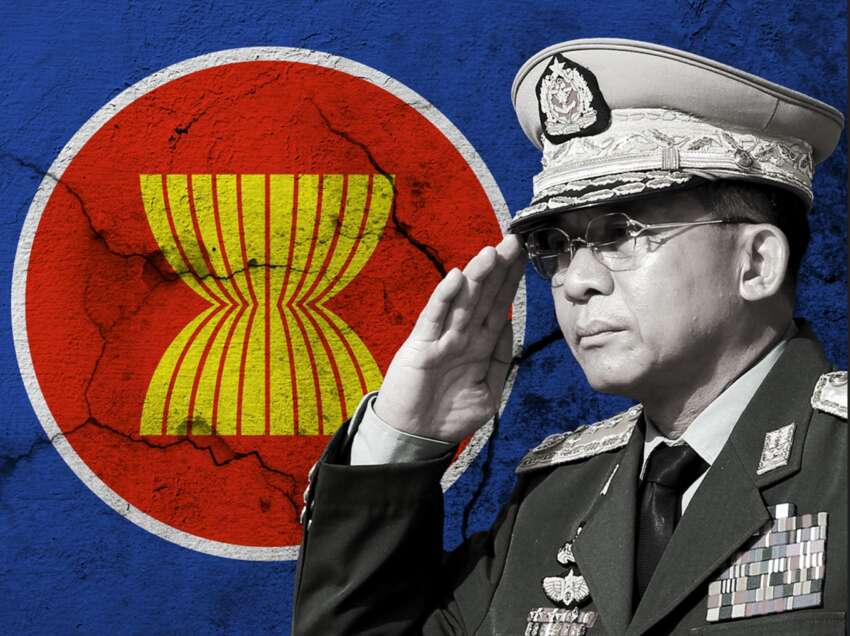
The Special Advisory Council for Myanmar (SAC-M) has strongly criticized ASEAN’s latest failure to effectively address the Myanmar crisis. The 46th ASEAN Summit, held in Kuala Lumpur, Malaysia from May 26 to 27, proved ineffective in handling the Myanmar situation, producing only meaningless statements. The ASEAN leaders have further worsened their four-year record of failures, according to the advisory council. The council emphasized that ASEAN’s continued adherence to the ineffective Five-Point Consensus on Myanmar demonstrates a severe lack of urgency, commitment, and innovation in addressing what has become the region’s most significant crisis in half a century.
The military council’s brutality was particularly evident when, during the ASEAN foreign ministers’ meeting on May 25, they conducted an airstrike on a wedding in Kyaukgyi Township, Bago Region, killing at least 10 civilians, including the bride and two children. This attack occurred less than two weeks after another military airstrike on a school in Depayin Township that killed 22 children and 2 teachers, while injuring 105 other civilians. Despite these atrocities, ASEAN’s new statement acknowledged and even called for an extension and expansion of the military’s practically non-existent ceasefire.
ASEAN leaders continue to mischaracterize the situation by equating the military council’s systematic and widespread brutality against civilians with the resistance forces’ revolutionary efforts. The military council has repeatedly announced ceasefires since the March 28 earthquake, yet has conducted 505 airstrikes, resulting in 436 civilian deaths, according to the National Unity Government’s Ministry of Human Rights. SAC-M member Yanghee Lee noted that Min Aung Hlaing’s continuous attacks on civilians make a mockery of ASEAN’s claims about the military’s supposed commitment to or implementation of any ceasefire.
The advisory council recommends that ASEAN Chair Malaysia’s Prime Minister Anwar should replace the ineffective Five-Point Consensus with a new process that prioritizes direct engagement with the National Unity Government (NUG), Ethnic Revolutionary Organizations (EROs), minority representatives, and Myanmar’s civil society. Furthermore, SAC-M member Chris Sidoti emphasized that if ASEAN genuinely wants to stop the military’s violence, it should immediately call for UN Security Council intervention and demand a nationwide ceasefire monitored by international observers to ensure the military council’s compliance. These recommendations come as the military council continues its campaign of violence against civilians while maintaining a facade of cooperation with regional peace initiatives.



